From a geology instructor who memorizes each student’s name to a professor who runs a human rights education network, from the head of the world’s richest foundation to a leader in helping special-needs children—the UW is honoring its best teachers, staff members and volunteers in an expanded awards program for 2000. Seven are UW professors chosen by a panel of faculty, students and alumni as this year’s top teachers. Two are teaching assistants named by the same panel. Five awards honor the best in public service to the University and the community; and five awards go to outstanding staff members.
Distinguished Teaching Awards
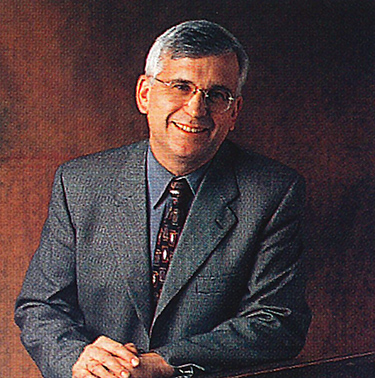 Gerald J. Baldasty
Gerald J. Baldasty
Department: Professor of Communications; 26 years at UW.
Courses Taught: Introduction to Mass Communication; History of Mass Communication; Ethnicity, Gender and the Media.
Achievements: Baldasty finds numerous ways to reach out to students and staff. He currently chairs 23 masters and Ph.D. committees. In 1978 he established the TA training program for the School of Communications. Currently, he serves as a supervisor on the Accrediting Council on Education in Journalism and Mass Communications as well as senior editor of Journalism History.
Quote: “I have never been so impressed, stimulated or changed by any course I have taken at the UW. He treated delicate subjects with the utmost diplomacy, and yet intellectually pushed us all to think differently about the world around us.”—Graduate student Susan Schrenk
Degrees: B.A., communications, UW, 1972; M.A., journalism, University of Wisconsin-Madison, 1974; Ph.D., communications, UW, 1978.
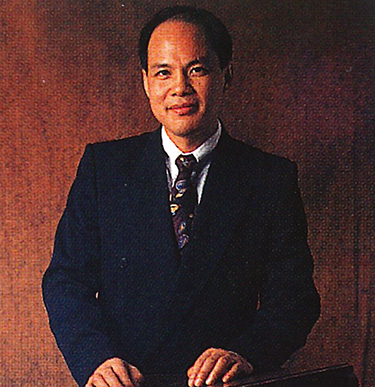 Guozhong Cao
Guozhong Cao
Department: Assistant Professor, Materials Science and Engineering; four years at UW.
Courses Taught: Processing of Inorganic Materials, Electrical Properties of Ceramics, Ceramic Processing.
Achievements: Consistently a winner of teaching awards within his department, Cao has developed five new courses around key multidisciplinary materials science research themes. His “problem-oriented” approach has been key in integrating research into the classroom.
Quote: “Cao is an extraordinarily talented, imaginative and productive young experimentalist. He is one of the superstars of his generation in sol-gel processing of materials and in diamond-thin film growth. … Cao is a true jewel in our midst—multifaceted, pure in heart, strong in his convictions, and brilliant at making his dreams a reality.” —Materials Science Professor Gretchen Kalonji
Degrees: B.S., East China University of Technology, Shanghai, China, 1982; M.S. Shanghai Institute of Ceramics, Chinese Academy of Science, 1985; Ph.D. Eindhoven University of Technology, Eindhoven, Netherlands, 1991.
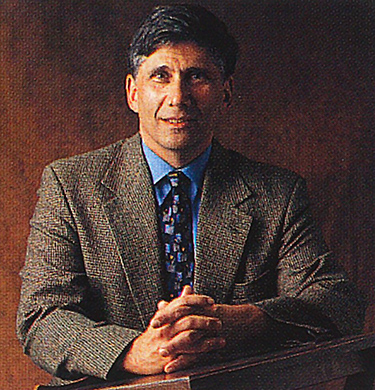 Stanley Chernicoff
Stanley Chernicoff
Department: Senior Lecturer, Geological Sciences; 19 years at UW.
Courses Taught: Geological Sciences, Geology of the Northwest.
Achievements: Incorporating down-to-earth explanations of complex geological issues, he is renowned for capturing the interest of non-science majors. Even when he teaches large lecture classes, he tries to memorize each student’s name. He consistently makes himself available to faculty and staff whether it is during lectures, office hours or on a field trip. He is director of the Student Athletic Academic Services, which helps student-athletes balance athletics with academics.
Quote: “I was astounded by his casual approachability and came to genuinely like the person who was challenging me to better myself. As we tromped past hot springs on the way to Mount Rainier or examined old seabeds on the way to Snoqualmie, we got the sense that this person really cared about us, and viewed himself as a steward to help us define our futures.” —Former student Clay Schwenn, ’93
Degrees: B.A., political science, City University of New York, 1970; Ph.D., geomorpholgy, University of Minnesota, 1980.
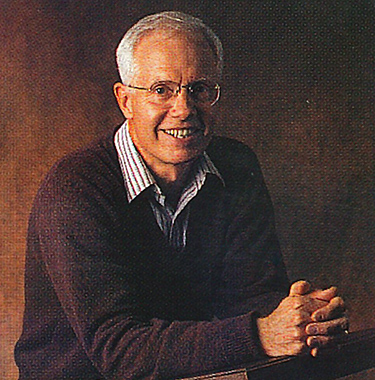 Stephen Gloyd
Stephen Gloyd
Department: Associate Professor, Health Services, 14 years at UW.
Courses Taught: Problems in International Health, Research Methods in Developing Countries.
Achievements: He founded and directed the International Health Program and has held this position since he created it 12 years ago. He is also the director of Health Alliance International, an organization that conducts public service projects as well as public education abroad. He has made many contributions to students through an Advanced Information Management Systems grant. He also serves as co-director of the Minority International Health Research Program.
Quote: “Steve is an extremely accessible professor; his door is almost always open and it is not unusual to find one or two students or faculty who have dropped by and gotten drawn into a discussion of public health issues.” —Undergraduate Education Dean Fred Campbell
Degrees: B.A., general studies, Harvard, 1969; M.D., University of Chicago, 1973; M.P.H., health and policy management, Harvard, 1983.
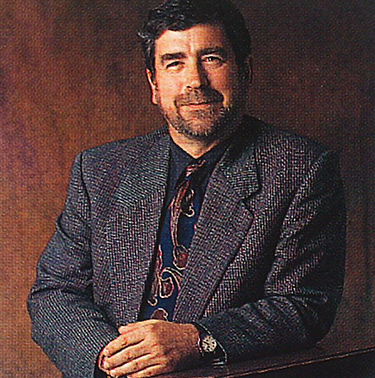 Bruce Kochis
Bruce Kochis
Department: Senior lecturer, Interdisciplinary Arts and Sciences Program, UW Bothell, six years at UW.
Courses Taught: Introduction to Interdisciplinary Studies, 20th Century Russia, Language Society and Cultural Knowledge, Democratic Capitalism in the U.S.
Achievements: In and out of the classroom he tackles culturally diverse, global issues. He designed and is the director of the UW Human Rights Education and Research Network, which creates awareness for world issues. He received a $270,000 Tools for Transformation grant to launch this program.
Quote: “Bruce Kochis’ commitment to ethical and intellectual openness is indisputable. I have observed this when I’ve served on panels with him, when I’ve read his essays on current issues, and when I’ve been involved with him directly in curriculum planning and actual teaching. He is an inquiring scholar in the best sense.” —UWB Arts and Sciences Professor Robert Schultz
Degrees: B.A., Slavic languages, UW, 1971; M.A., Slavic languages and literatures, University of Michigan, 1975; Ph.D., Slavic languages and literatures, University of Michigan, 1979.
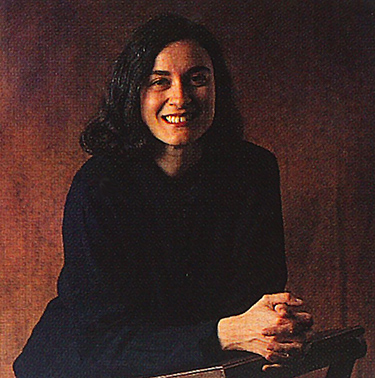 Julie Nicoletta
Julie Nicoletta
Department: Assistant Professor, Interdisciplinary Arts and Sciences, University of Washington Tacoma; four years at UW.
Courses Taught: The Making of America, Public History, History of Religion in America, Ethnicity and the Urban Landscape, American Architecture, Modern Architecture, Art of the Americas, The Material World: Art and Artifacts.
Achievements: She helped develop the Arts, Media and Culture concentration at UW Tacoma. She incorporates the latest technological trends into her classes. She supervises independent projects, acts as a mentor, and makes a special effort to know her students personally.
Quote: “[Julie] has touched the lives of hundreds of students, faculty and staff at the UW Tacoma … [and makes] ongoing contributions to the growth, development and excellence of the UW Tacoma.” —UWT Chancellor Vicky Carwein
Degrees: B.A., art history, Pomona College, 1987; M.A., art history, Yale University, 1988; M.Phil., art history, Yale, 1990; Ph.D., art history, Yale, 1993.
 Robin L. Wright
Robin L. Wright
Department: Associate Professor of Zoology and of Molecular and Cellular Biology; 10 years at UW.
Courses Taught: Introductory Biology, Introduction to Molecular Biology, Cell Biology, Advanced Cell Biology.
Achievements: Wright introduced technology-based learning and teaching techniques into the classroom and has mentored students in the Hughes, NASA and other programs. Currently, she is the director of the Howard Hughes Undergraduate Education Program, which funds undergraduate research. She has been pivotal in running outreach programs that connect community colleges and high schools with the UW.
Quote: “She is one of the only professors at this University who can remember the names of all of the students in a class of 150 students or more. She lectures in a way that is interesting, informative, and easy to follow. Robin is very in touch with her students, very patient, and she [is] always willing to answer questions, no matter how silly they may seem.” —Student Cheri Turner
Degrees: B.S., biology, University of Georgia, 1979; Ph.D., biological sciences, Carnegie-Mellon University, 1985.
Excellence in Teaching Award
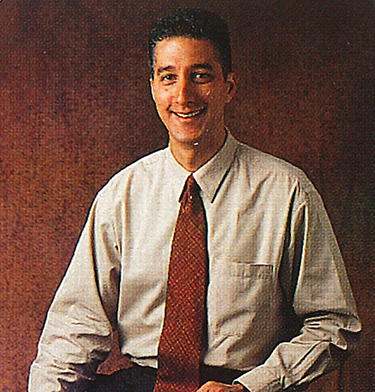 Scott Harding
Scott Harding
Department: Teaching Assistant, Social Work; two years at UW.
Courses Taught: Poverty and Inequality in America, Social Policy and Economic Security, Community Change and Service, Cultural Diversity and Social Justice.
Achievements: His ability to teach and relate well to others is recognized by both staff and students. He is deeply committed to poverty and social welfare issues, which influence his class Poverty and Inequality in America. Harding is known to reach out to students and makes himself readily available to talk, help with assignments or projects.
Quote: “What makes Scott’s teaching so powerful, I think, is a compelling blend of style and substance. He has natural gifts in the classroom. But these are grounded in a firm foundation of careful, indeed exhaustive preparation.” —Social Work Professor Susan Kemp
Degrees: B.A., government/journalism, California State University, Sacramento, 1984; M.S.W., Cal-State, Sacramento.
Excellence in Teaching Award
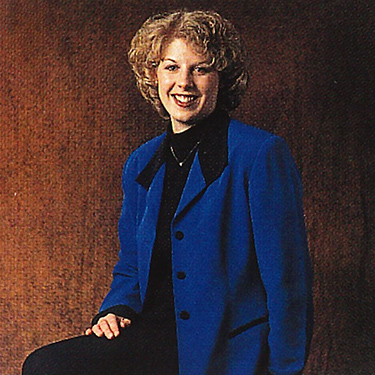 Stephanie D. Tomlinson
Stephanie D. Tomlinson
Department: Teaching Assistant, Speech Communication; three years at UW.
Courses Taught: Public Speaking, Communications in the Classroom, Children and the Electronic Media, News Writing.
Achievements: Adept at using a variety of strategies for the classroom, she routinely incorporates scholarly research into her courses. She consults frequently with other TAs about their teaching, freely gives of her ideas, time and teaching materials and resources.
Quote: “I have never had an instructor who has cared about my achievements and progress as much as Stephanie has. … Stephanie not only taught us how to instruct and communicate with others, she also provided a flawless example of what a perfect teacher should be.” —Student Heidi S. Brough
Degrees: B.A., communications, Pacific Lutheran University, 1997; M.A., speech communication, UW, 1999.
Distinguished Graduate Mentor Award
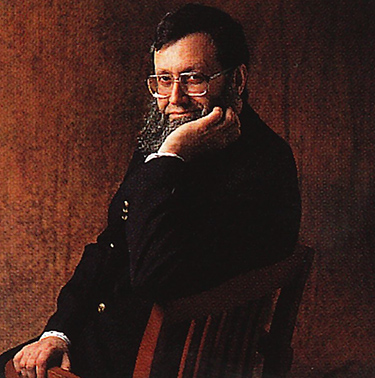 David Notkin
David Notkin
Department: Professor of Computer Science and Engineering; 16 years at UW.
Courses Taught: Programming Languages, Software Engineering.
Achievements: Notkin is a mentor who puts his students first. He introduces graduate students to influential people in the industry, funds many student research projects and helps students with scholarship applications. After graduation he maintains strong relationships with his former students, serving not only as a career adviser, but as a close friend.
Quote: “David will always be a mentor to me. I know that I can turn to him for support and advice and have him answer with my best interests in mind. I continue to trust, respect, and learn from his opinions.” —Former student Gail A. Alverson, ’88, ’90
Degrees: Sc.B., computer science, Brown University, 1977; Ph.D., computer science, Carnegie-Mellon University, 1984.
S. Sterling Munro Public Service Faculty Award
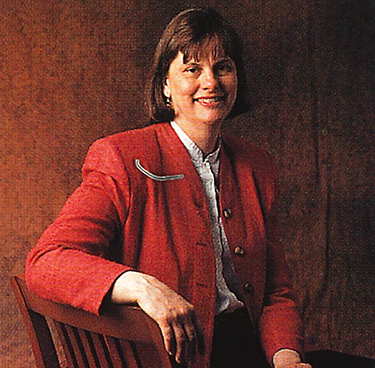 Deborah Wiegand
Deborah Wiegand
Department: Senior Lecturer, Chemistry; 10 years at UW.
Courses Taught: Introduction to General Chemistry, General Chemistry, Science Outreach Training, Teaching Chemistry.
Achievements: She created and administered the Science Service Learning Program. She is involved in other outreach efforts to assist with local Seattle schools. Through her example, students learn to contribute positively to the community while learning in the process.
Quote: “Science Service Learning offers students many unique experiences not available in purely academic courses. Through her vision, leadership, and high level of organization, Wiegand has developed an exemplary course that serves both the UW undergraduates and the community projects that participate.” —High School Human Genome Program Director Maureen Munn
Degrees: B.S., biochemistry, University of Illinois, 1973; Ph.D., analytical chemistry, Northern Illinois University, 1990.
Outstanding Public Service Award
 Eugene Edgar
Eugene Edgar
Department: Professor of Education; 28 years at UW.
Achievements: Edgar is a tireless advocate for meaningful special education programs for disabled kids and their families. He developed the Special Sitters Program, which allows parents of affected children to leave them with a trusted and trained caretaker. He serves on numerous boards of agencies working to serve people with disabilities, and on the Accommodations Committee of the Commission on Student Learning.
Quote: “His message is simple but profound: ‘As special educators, we can’t fix your child; no single therapy or treatment will ultimately make that big of a difference. As a parent, what you can do is love your children and provide them a loving environment. But it all starts with you loving yourself and your mates; only then will you will be able to love your child and get past your grief and frustration. Enjoy your child, enjoy yourself and mellow out.’ This is powerful stuff for men to hear, and Gene delivers the message with sensitivity and care.” —James May, director of the Washington State/National Fathers Network Program
Degrees: B.S., special ed/geography, Indiana State University, 1965; M.S., special ed, George Peabody College for Teachers, 1968; Ph.D., special ed, Peabody College, 1972.
UW Recognition Award
 William H. Gates
William H. Gates
UW Connections: Besides earning his undergraduate and law degrees at the UW in 1949 and 1950, Gates has served on the UW Board of Regents since 1997. He has been a director of the UW Foundation and on visiting committees for the College of Arts and Sciences and the School of Law.
Public Service: Gates was a major fund-raiser for the Campaign for the Student Athlete, Daniel J. Evans Endowment for Excellence in Public Service, and the new building for the School of Law, which will carry his name. He also established the Mary Gates Endowed Scholarship for undergraduate students. As co-chair and CEO of the Bill and Melinda Gates Foundation, Gates is responsible for helping guide one of the nation’s largest charitable foundations. In 1995, he helped found the Technology Alliance, a cooperative regional effort to expand technology-based employment in Washington. As a successful attorney, Gates served as president of both the Seattle/King County Bar Association and the Washington State Bar Association. His leadership and contributions to community service earned him the E. Donnall Thomas Medal of Achievement in 1998.
Quote: “What makes Bill stand out from other successful professionals … is his unwavering commitment to the University and the surrounding community. In Seattle and beyond, Bill is recognized as a leader among leaders.” —Lynn Hogan, interim vice president for development
UWAA Distinguished Service Award
Cory Carlson
Service to the UW and UWAA: President of the UW Alumni Association, 1998-99. Also served as a trustee, treasurer, vice president and president-elect during 10 years of service on the alumni board. His UW M.B.A. was awarded in 1981.
Achievements: Few volunteers have served the alumni association as long or as actively as Carlson. He was the lead negotiator in the University’s agreement with First USA for an affinity credit card, which resulted in increased funding for alumni association programs. He was also a driving force behind the UWAA’s Technology Task Force, which helped launch lifetime e-mail forwarding for new alumni. He is also a key player in the movement to fund and build a new UW Alumni Association alumni center.
Quote: “Cory’s dedication and contributions to the alumni association cannot be overstated. He is a master of the art of gentle persuasion and that results in people finding themselves supporting what they once adamantly opposed. His tireless efforts put our association on a sound financial footing and he continues to be a key player in getting our new building constructed.” —Geoff Vernon, ’65, UWAA President, 1999-2000
Distinguished Staff Awards
Cynthia Fugate
Department: UW Bothell Librarian and Director of Academic Services; 16 years at UW.
On the Job: She oversees the library, information systems, slide library and media services. She also manages the UWB writing center, the Quantitative Skills Center and is in charge of much of the planning for the move to the new campus this fall.
Achievements: Fugate oversaw design of the library, media center and computer-linked classrooms of the new campus. In 1998, she spearheaded the implementation of the Campus Multimedia Studio. Within the library, she has administered numerous changes, including the online electronic reserve system.
Quote: “Providing excellent service to demanding clients requires the wisdom of Solomon, the patience of Job, and the humor of Rosie O’Donnell. Cynthia possesses these traits as well as the ability to attract and retain an outstanding team that functions well under challenging circumstances. If I were leaving the UWB to start any type of new enterprise, Cynthia is the person I would most like to take with me.” —UWB Vice Chancellor for Academic Affairs Stanley F. Slater
Dave Hurley
Department: Senior Computer Specialist, Biology Program; 10 years at UW.
On the Job: Hurley runs the Biology Study Center, assists students with course work, answers questions and teaches study skills.
Achievements: He is credited with transforming the once “sleepy” Biology Study Area to a center that is vibrant with student activity and learning. From setting up hardware for laboratories to emergency assistance, to holding workshops for students, to learning computer technology, to maintaining the Web sites for the classes, Hurley has made the Biology Program successful with its outreach programs to undergraduate researchers and secondary schools.
Quote: “One of my colleagues has stated that Dave Hurley is a ‘treasure, a natural wonder, a one-of-a-kind, jack-of-all-trades.’ I concur! The Distinguished Staff Award must go to someone with dedication, innovativeness, and willingness to take his/her job to new levels—Dave Hurley is just such a person.” —Biology Lecturer Linda Martin-Morris
Laura Robinson
Department: Physical Therapy Program Coordinator, Rehabilitation Medicine; 11 years at UW.
On the Job: She coordinates the budget, curriculum and class schedules for the physical therapy program. She also serves as the program’s public relations coordinator, secretary, custodian, security guard, student adviser, record keeper and historian. She has three UW Degrees: B.A., anthropology, ’76; B.S. physical therapy, ’85; and B.SM. physical therapy, ’88.
Achievements: She sets up laboratory classrooms and is responsible for entering the department’s course descriptions. She consistently is there for both staff and students to answer their questions, offer her expertise and provide support.
Quote: “Without question, the most commonly uttered phrase around here is ‘Ask Laura.’ It is understood your best chance of getting an answer to a difficult question or solving a problem is with Laura’s help.” —Rehabilitation Medicine Associate Professor Mark R. Guthrie
Kellus Stone
Department: Administrator, Industrial Engineering; 11 years at UW.
On the Job: She oversees all aspects of departmental operations. She is the person to turn to for virtually any administrative need in industrial engineering.
Achievements: Stone is credited with restructuring the department, developing a strategic plan, and helping create a departmental visiting committee. She also organized and oversees a student advisory board. She was also a strong advocate for the UW School of Communications when it faced closure due to budget cuts in 1995.
Quote: “The department has benefited greatly from Kellus’ ability to motivate those around her, her strategic financial management skills and her level of organization through creative thinking and problem solving.” —Margaret Remlinger, D.J. Miller and Deborah Fromm, Dept. of Industrial Engineering staff
Mahmoud Zubeidi
Department: Duplicating Services Supervisor, Publication Services; 14 years at UW.
On the Job: Supervises the Communications Building Copy Center, which produces invitations, reports, news releases, course materials, programs and other print pieces.
Achievements: He is able to achieve high-quality work and top-notch customer service in a high-demand department in the center of campus.
Quote: “Walking into Zubeidi’s copy center, you witness a well-oiled machine. With the weight of phones ringing, machines running and a line of customers snaking out the door, he and his staff remain patient, calm and courteous as they weave around each other, equipment and boxes of supplies to answer calls, ring up cash sales and attend customers. … He teaches his staff how to run a reliable shop, but his real gift is teaching them the importance of their job to the customer.” —School of Music Support Supervisor Claire Peterson